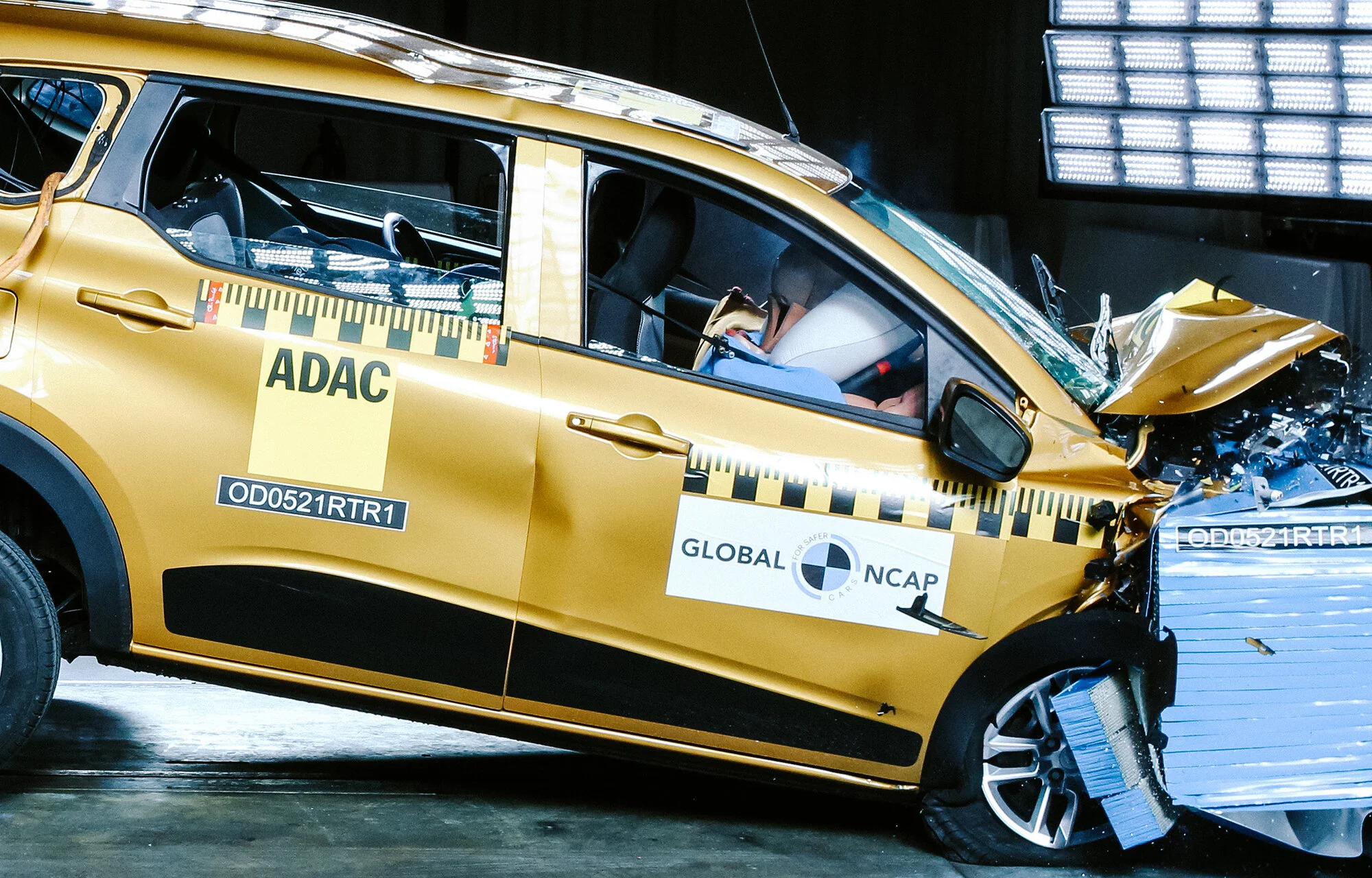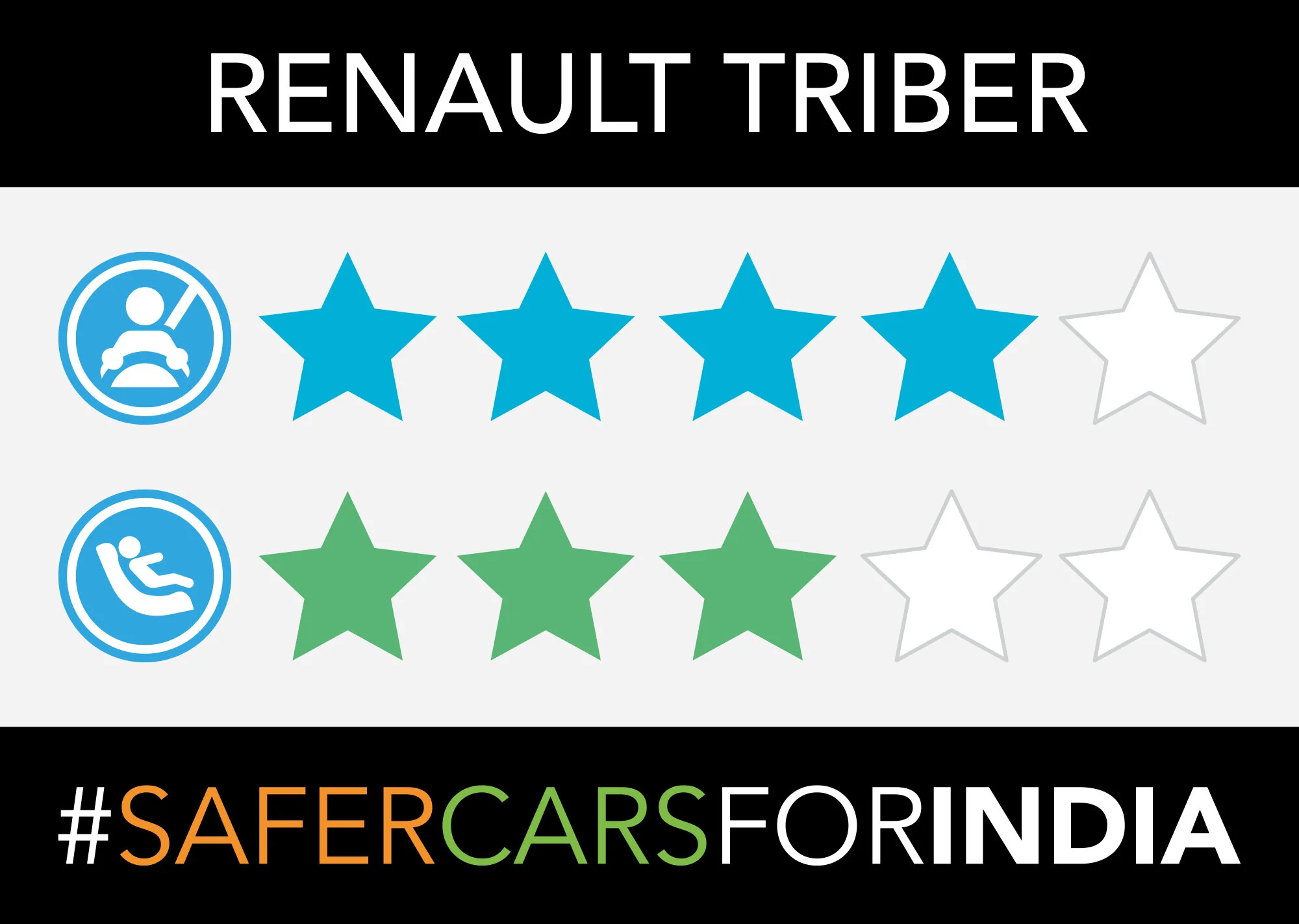Four star adult crash test performance for Renault Triber
The Renault Triber has achieved an encouraging four star rating for adult occupants and three stars for child occupants in Global NCAP’s latest round of #SaferCarsForIndia crash tests.
Renault’s new compact crossover was tested in its most basic safety specification, with two airbags. The Triber showed significant improvements from previous Renault models tested by Global NCAP.
Alejandro Furas, Secretary General of Global NCAP said,
“Renault has significantly improved adult occupant protection performance in frontal crashes compared with our 2016 tests on the Kwid. The Triber sets a strong baseline for the manufacturer, and we encourage Renault to maintain this important progress as a minimum with the goal of achieving 5 star levels of safety.”
David Ward, President of the Towards Zero Foundation said,
“It is satisfying to note Renault’s safety improvements with Global NCAP’s Triber crash test result. We would encourage them to continue this progress, and to set a five star or Safer Choice rating as their future target for the Indian market.”
Renault Triber (2 airbags)
The protection offered to the adult occupant driver and passenger head and neck was good. Driver chest showed marginal protection and passenger chest showed adequate protection. Driver knees showed marginal protection as they could impact with dangerous structures behind the dashboard. Passenger knees showed good protection. Driver and passenger tibias showed adequate protection.
The bodyshell was rated as unstable and it was not capable of withstanding further loadings. Footwell area was rated as stable. The car offers standard seatbelt reminders (SBR) for driver and passenger.
Read the full crash test report
Watch the crash test video
Download crash test image
Child Occupant Protection
The child seat for the 3 year old was installed forward facing with adult seatbelts and was not able to prevent excessive forward movement during the impact. Chest protection was average and the head protection was low as it was exposed during the crash The 18 month old child restraint was installed with adult seatbelt rearward facing offering full protection to the child occupant. CRS marking was permanent. The recommended CRS did not show incompatibility. The vehicle offers a lap belt in the rear centre position. The car does not offer ISOFIX anchorages.
Global NCAP awards a separate child safety rating to each car in order to highlight the different levels of protection vehicles provide to passengers on the rear seats. Global NCAP tests a combination of the car and child seat recommended by the car manufacturer. Because the only safe way for young children to travel is properly restrained in a child seat, the assessment checks how compatible the car is with the child seats recommended by the manufacturer, as well as the protection provided in the crash test.
Note to Editors
Safer Cars For India Campaign
The #SaferCarsForIndia Campaign was launched by Global NCAP in 2014 with the objective of promoting safer vehicles in the country. Between 2014 and 2020 Global NCAP has completed more than forty-three safety assessments which have acted as an important catalyst in the safety improvement of Indian cars.
www.globalncap.org
Global NCAP is a major programme of the Towards Zero Foundation, a UK based charity working internationally in support of the UN Decade of Action for Road Safety, with a goal of halving road deaths and serious injuries by 2030.






